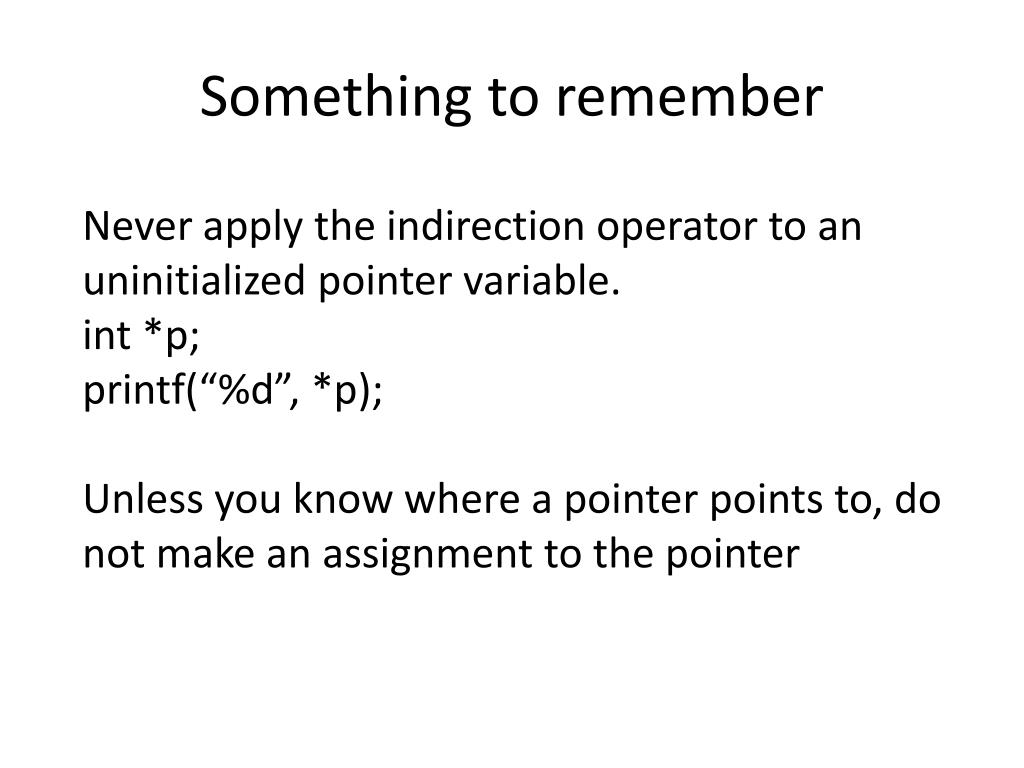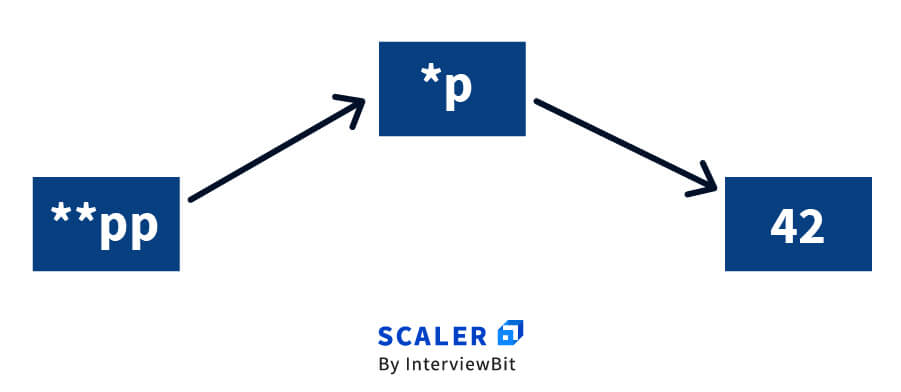
The use of the operator in this context is different from its meaning as a binary operator, which is multiplication. The result of the indirection expression is the type from which the pointer type is derived. The operand of the indirection operator must be a pointer to a type. The following behavior-changing defect reports were applied retroactively to previously published C++ standards. The unary indirection operator ( ) dereferences a pointer that is, it converts a pointer value to an l-value. It was suggested that it could be part of smart pointer interface, and in fact is used in that capacity by actors in boost.phoenix, but is more common in EDSLs such as cpp.react. No standard library classes overload operator - > *.
The best known example of overloaded operator & is the Microsoft COM class CComPtr, although it can also appear in EDSLs such as boost.spirit < Iter > Output A /usr/include/c++/bits/iteratorconcepts.h:615:33 : note : because ' i ' would be invalid : indirection requires pointer operand.No standard library classes overload operator &. (public member function of std::regex_token_iterator) In overload resolution against user-defined operators, for every object type T (possibly cv-qualified), the following function signature participates in overload resolution: Parentheses are needed to for using a comma expression as the subscript, e.g., a. For example, a is either ill-formed or equivalent to a.

Using an unparenthesized comma expression as second (right) argument of a subscript operator is deprecated.įor example, a is deprecated and a is not.Īn unparenthesized comma expression cannot be second (right) argument of a subscript operator. The type T is not allowed to be an incomplete type, even if the size or internal structure of T is never used, as in &x.

When applied to a pointer, the subscript expression is always an lvalue.

When applied to an array, the subscript expression is an lvalue if the array is an lvalue, and an xvalue if it isn't (since C++11). The built-in subscript expression E1 is exactly identical to the expression * (E1 + E2 ) except for its value category(see below) and evaluation order (since C++17): the pointer operand (which may be a result of array-to-pointer conversion, and which must point to an element of some array or one past the end) is adjusted to point to another element of the same array, following the rules of pointer arithmetics, and is then dereferenced. The subscript operator expressions have the formģ) The form with comma-separated expression list inside the square brackets is only used to call an overloaded operator. Member of object and pointer to member of object operators provide access to a data member or member function of the object operand.īuilt-in member of pointer and pointer to member of pointer operators provide access to a data member or member function of the class pointed-to by the pointer operand. 1.5 Built-in pointer-to-member access operatorsīuilt-in subscript operator provides access to an object pointed-to by the pointer or array operand.īuilt-in indirection operator provides access to an object or function pointed-to by the pointer operand.īuilt-in address-of operator creates a pointer pointing to the object or function operand. printf( // i invalid - error: indirection requires pointer operand (int invalid) n idn &ipn &idn &ipn, i, &i, &i.One exception is operator->, which must return a pointer or another class with overloaded operator-> to be realistically usable. However, in a user-defined operator overload, any type can be used as return type (including void). As with most user-defined overloads, return types should match return types provided by the built-in operators so that the user-defined operators can be used in the same manner as the built-ins.Member access operators: a, *a, &a, a->b, a.b, a->*b, a.*b Increment and decrement: ++a, -a, a++, a.
helper function declarations will generate unused definition warnings.Value categories (lvalue, rvalue, xvalue)Ĭharacter literals including escape sequencesĪ=b, a+=b, a-=b, a*=b, a/=b, a%=b, a&=b, a|=b, a^=b, a>=b /distcount.h:275:12: error: indirection requires pointer operand (std::iterator
INDIRECTION REQUIRES POINTER OPERAND CODE
Use of this source code is governed by a BSD-style license that can be Question: I got an error of Indirection requires pointer operand (double invalid) how should I fix it The code is below: include < iostream>.


 0 kommentar(er)
0 kommentar(er)
